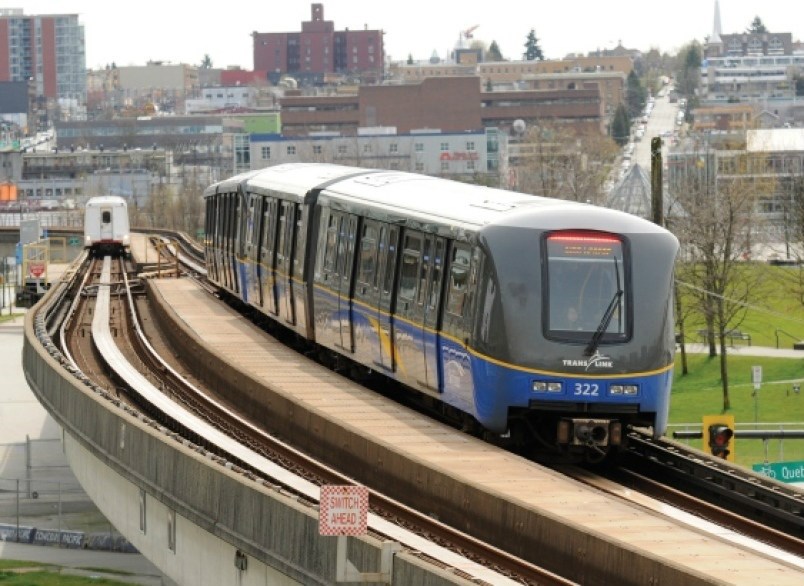 TransLink is proposing a pricing by distance model.
TransLink is proposing a pricing by distance model.
TransLink announced on Monday a new proposed fare structure that would charge SkyTrain, SeaBus and future rail project riders by distance, with a flat fare staying in place for buses.
The system is designed to be more fair, while remaining revenue neutral, said TransLink’s manager of policy and development Andrew Devlin. The maximum fees charged would not increase.
SkyTrain riders would be charged for the number of kilometres they ride, making their trip increasingly expensive in small increments, rather than big jumps when they cross zone borders.
“What we’re really doing is smoothing out that price curve between the minimum fare and the maximum fare,” Devlin said.
He said this system would solve the unfair and arbitrary nature of the current three-zone system. Under the current system, a rider is charged a two-zone fee if their trip happens to cross a zone border — even if that trip is only two or three stops.
For example, a one-stop trip from Joyce-Collingwood to Patterson currently results in a two-zone fare. Under the new system, a rider would pay the minimum fare for the same trip.
The proposal comes as part of the fourth and final phase in TransLink’s Transit Fare Review. A public consultation phase is now open until June 29. TransLink staff plan to bring the proposal to their board and the Mayors’ Council at the end of the summer.
Devlin said the new system, if it goes ahead, likely won't be in place until 2020.
The majority of riders — about 64 per cent — won’t see their fares change by more than 10 per cent, Devlin said. Of the remaining 37 per cent of riders, half would see an increase greater than 10 per cent and half would see a decrease greater than 10 per cent, he said.
People who currently cover long distances on the SkyTrain without crossing a zone border will see the greatest increases, he said.
Any riders confused by the changes will be greeted with new easy-to-understand maps at stations, Devlin said. They will also be able to follow a simple series of questions on the touchscreen of a Compass vending machine that will help them understand what they need to pay to finish their trip.
TransLink looked at bringing fares down during off-peak hours and expanding discounts to young people and low-income individuals, Devlin said, but it is not making any proposals on that front at this time, as it would require more funding.


